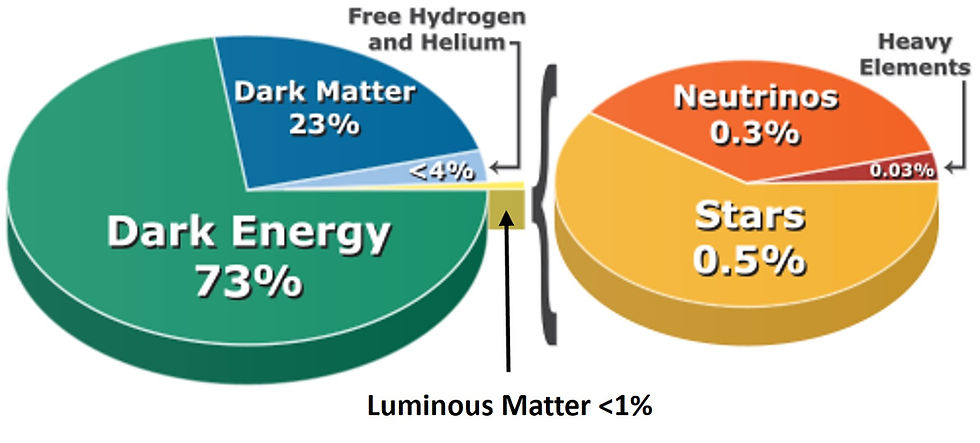The Assumption of Moses
- stephenstrent7

- Nov 25, 2023
- 4 min read

My latest book on Amazon (2023): Who is Adam? Order your own copy today.
Where Science Meets Religion by Trent Dee Stephens, PhD, for the Come Follow Me lesson November 27 - December 3: 1–3 John; Jude
We read the following in Jude 1:9, “Yet Michael the archangel, when contending with the devil he disputed about the body of Moses, durst not bring against him a railing accusation, but said, The Lord rebuke thee.”
The following is from my new book, Who is Adam?, just published this week on Amazon.
In contrast to modern scripture, where Michael is discussed nine times, he is mentioned only five times in all of ancient scripture. In each case, the reference is in the context of a major conflict with the forces of evil. The most familiar reference, in the book of Revelation, is to Michael’s battle with Satan in the premortal world. “And there was war in heaven: Michael and his angels fought against the dragon; and the dragon fought and his angels, And prevailed not; neither was their place found any more in heaven. And the great dragon was cast out, that old serpent, called the Devil, and Satan, which deceiveth the whole world: he was cast out into the earth, and his angels were cast out with him.” (Revelation 12:7-9)
Then there is the odd reference to Michael in the book of Jude in the New Testament, “Yet Michael the archangel, when contending with the devil he disputed about the body of Moses, durst not bring against him a railing accusation, but said, The Lord rebuke thee.” (Jude 1:9) This verse is quite confusing at several levels, and bible commentators have wrestled with it for many years. John Gill (1697-1771) proposed that the struggle between Michael and Satan was over where – or even whether to bury Moses’ body after his death. (Gill, John, Exposition of the New Testament, 3 vols, 1764-1768) This scenario would not actually have happened, however, as Moses was translated so as to pass his keys to the Savior at the mount of transfiguration. (c.f. Matthew 17:1–9) An alternative explanation proposed by Gill was that the struggle occurred over Moses’ soul while he was still alive.
One question is: where did Jude get this story in the first place? Origen (c. 185–254), an early Christian scholar, mentions a Jewish/Greek book, “The Assumption of Moses,” as existing in his day. (ccel.org/ccel/schaff/anf04.vi.v.iv.iv.html; retrieved 13 August 2023) The book apparently contained this very account of the contest between Michael and Satan over the body of Moses. Origen supposed that “The Assumption” was the source of Jude’s account. (Ibid) The portion of the book containing that information is now lost. There appears to be no account in extant scripture of a struggle between Moses and Satan, or between Michael and Satan over Moses.
However, through modern revelations to the Prophet Joseph Smith, recorded in The Pearl of Great Price, we now have another account of “Moses’ Assumption,” and therein is an account of Moses’ struggle with Satan. Moses 1 teaches us that, “The words of God, which he spake unto Moses at a time when Moses was caught up [assumption] into an exceedingly high mountain, And he saw God face to face, and he talked with him, and the glory of God was upon Moses; therefore Moses could endure his presence.” (Moses 1:1-2)
“And it came to pass that…Satan came tempting him, saying: Moses, son of man, worship me. And it came to pass that Moses looked upon Satan and said: Who art thou? For behold, I am a son of God, in the similitude of his Only Begotten; and where is thy glory, that I should worship thee? For behold, I could not look upon God, except his glory should come upon me, and I were transfigured before him. But I can look upon thee in the natural man. Is it not so, surely? Blessed be the name of my God, for his Spirit hath not altogether withdrawn from me, or else where is thy glory, for it is darkness unto me? And I can judge between thee and God; for God said unto me: Worship God, for him only shalt thou serve. Get thee hence, Satan; deceive me not; for God said unto me: Thou art after the similitude of mine Only Begotten. And now, when Moses had said these words, Satan cried with a loud voice, and ranted upon the earth, and commanded, saying: I am the Only Begotten, worship me. And it came to pass that Moses began to fear exceedingly; and as he began to fear, he saw the bitterness of hell. Nevertheless, calling upon God, he received strength, and he commanded, saying: Depart from me, Satan, for this one God only will I worship, which is the God of glory. And now Satan began to tremble, and the earth shook; and Moses received strength, and called upon God, saying: In the name of the Only Begotten, depart hence, Satan. And it came to pass that Satan cried with a loud voice, with weeping, and wailing, and gnashing of teeth; and he departed hence, even from the presence of Moses, that he beheld him not.” (Moses 1:12-22)
Now, Michael is never mentioned in this scripture, but the passage “Nevertheless, calling upon God, he received strength…” (vs 20) is very interesting. Could this be the time when Michael intervened in God’s behalf to strengthen Moses and fight for Moses against Satan? Moses 1 certainly appears to contain all the requisite parameters for Jude’s reference.
Trent Dee Stephens, PhD
trentdeestephens.com



Comments